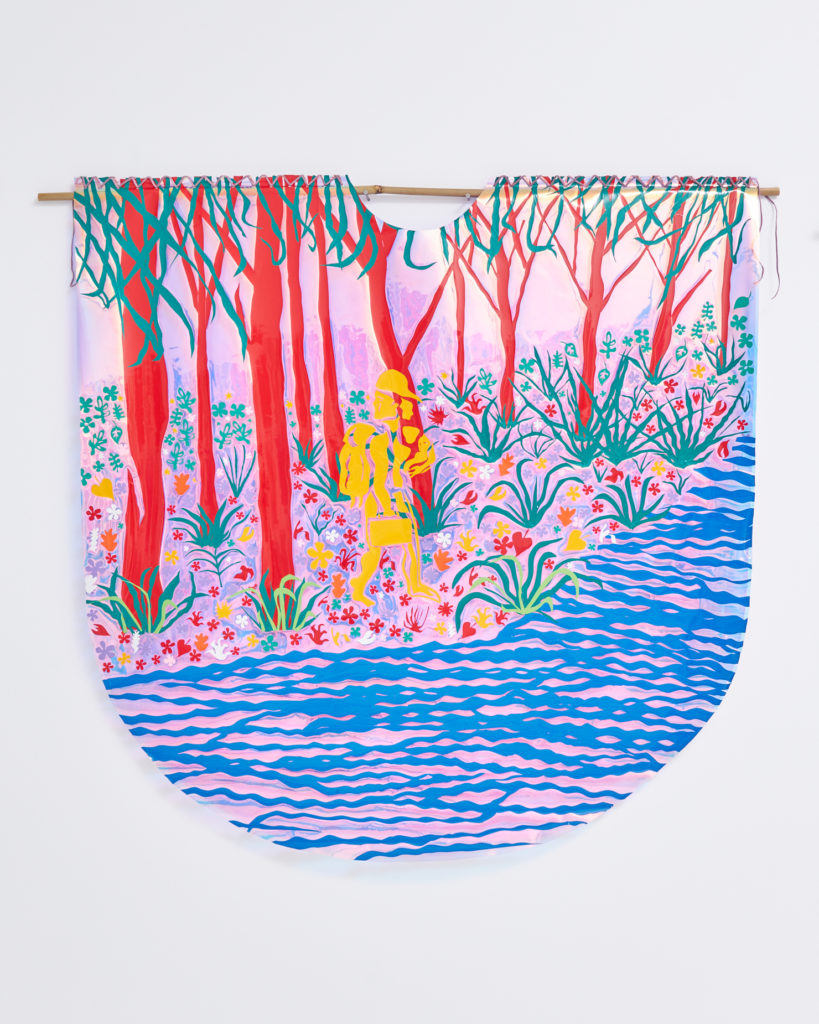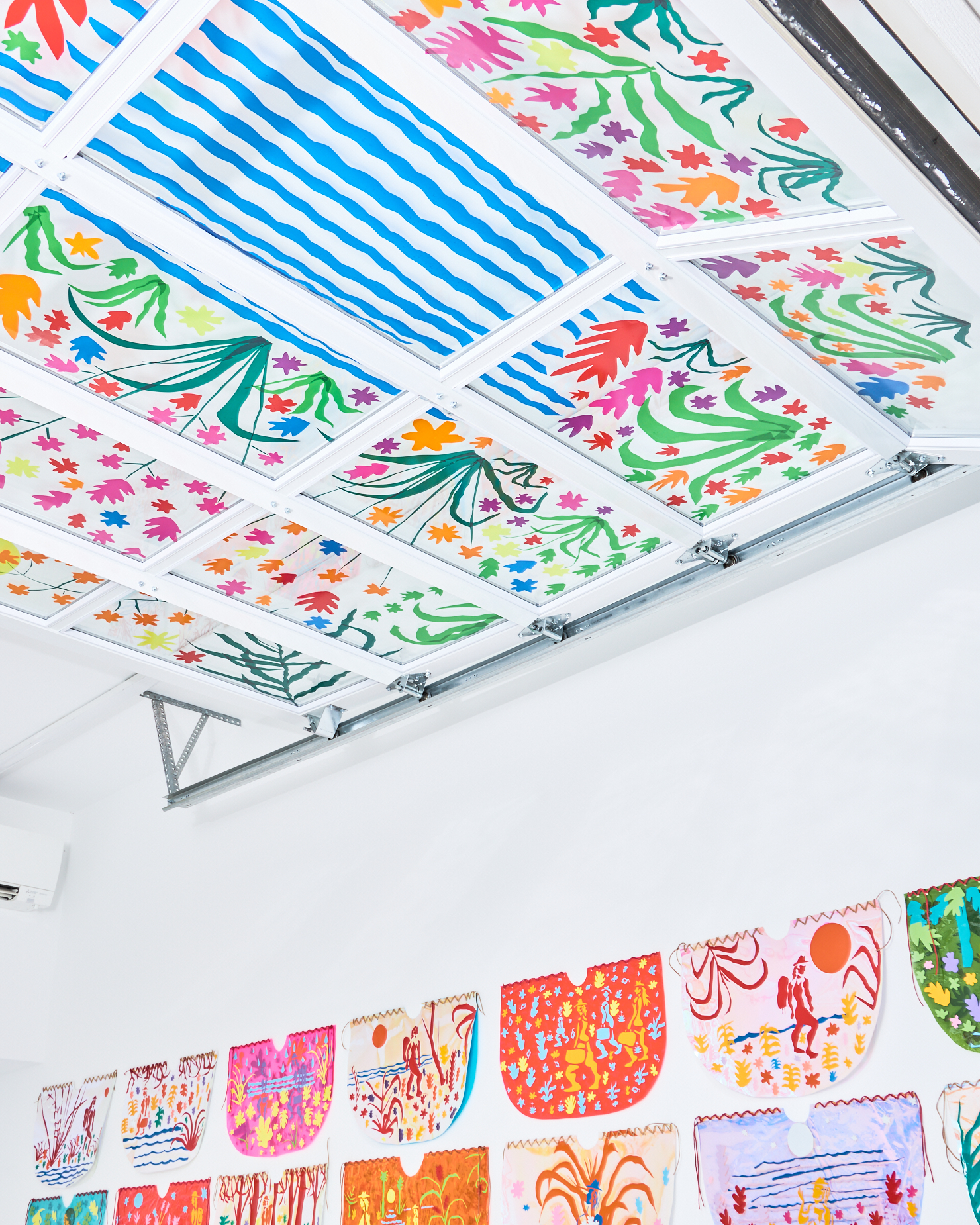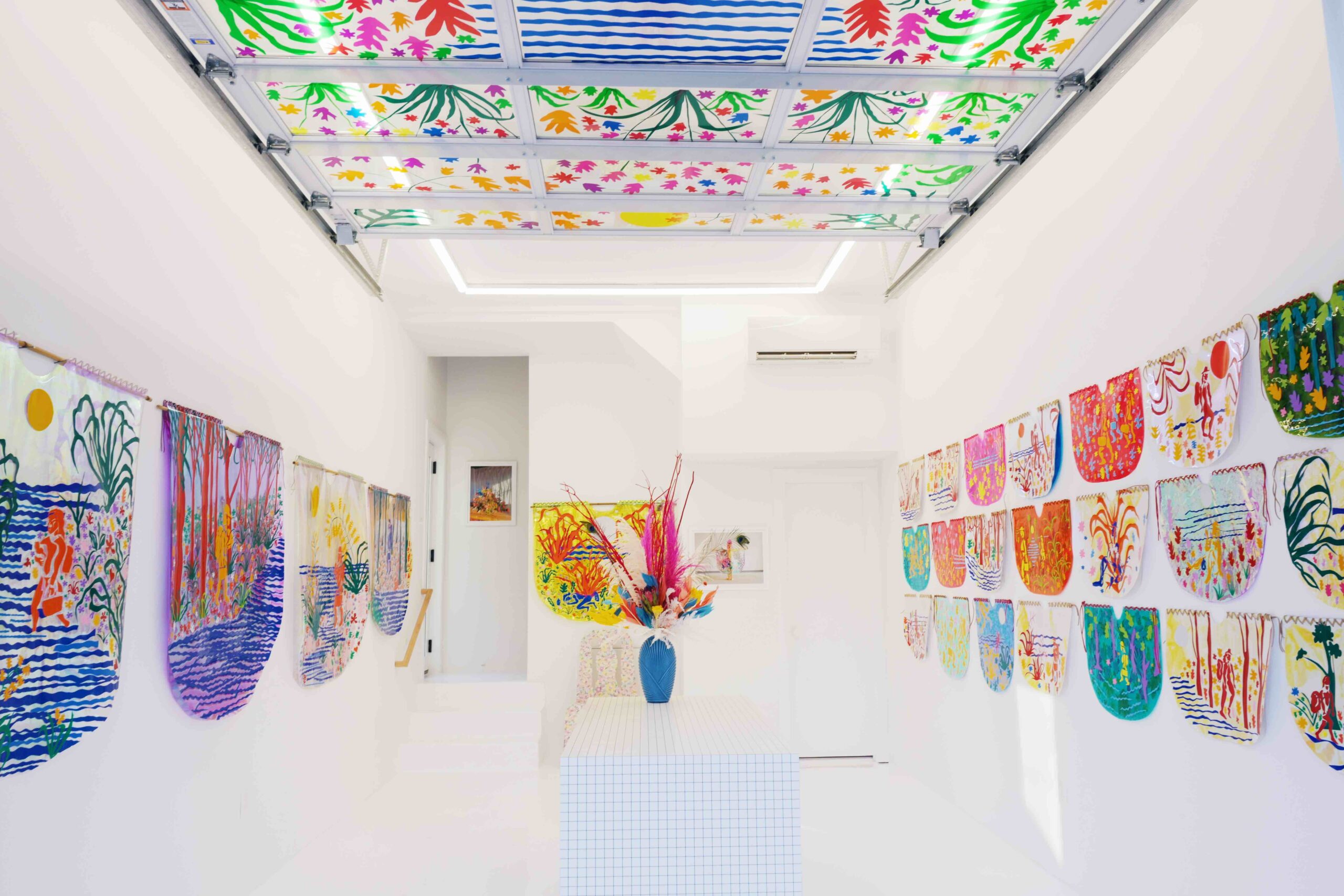
Hoesy Corona wants us to think about the intersection between the climate crisis and immigration by challenging our bias about both topics. In his ongoing series, Climate Immigrants (2017–present), the Baltimore-based artist uses a combination of sculpture, performance art, and painting to evoke a colorful, choreographed dreamscape grounded in the experiences of migrants—at the U.S.-Mexico border and elsewhere. Part of the series, Climate Ponchos, was recently on view at Friends Art Space in Arlington, Virginia, where waterproof vinyl garments—which Corona calls “wearable sculptures that hint at notions of home, travel, and protection”—lined the walls. “They function almost as a warning to our current unhealthy relationship and exploitation of the earth,” he says.
Corona’s background as a painter shines through in his Climate Ponchos, each a testament not only to his deftness with multimedia works but his ability to render complex topics into an inviting and vibrant object. The ponchos are made from waterproof vinyl and depict people as they walk through lush landscapes carrying suitcases or bags, which remind us of the decisions migrants must take before setting off thousands of miles in search of a new life. Despite the gravity of the scenes Corona portrays, his ponchos are cheery and bright. “I am drawn to the bold use of colors to contrast the more sinister aspects in the work,” he says. Whether or not audiences see Climate Ponchos in performance or in a state of stillness, Corona hopes “that we begin to expand our understanding of our shared, if brief, moment on this earth and our relationship to and treatment of one another.”



